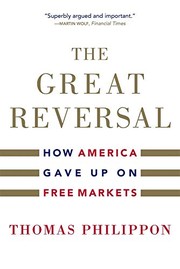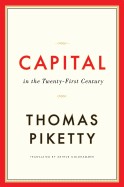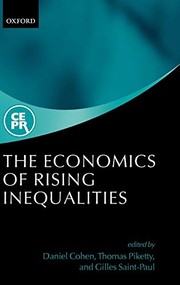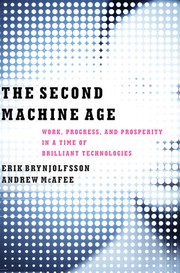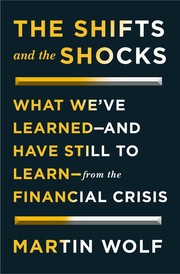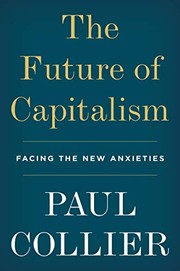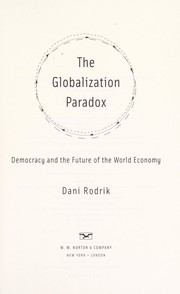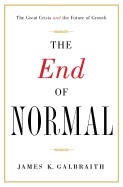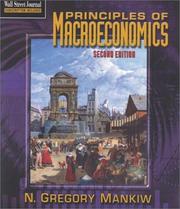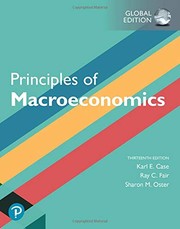Welcome to our comprehensive guide to the 20 best books about macroeconomics. Whether you’re a student, professional economist, or simply interested in the subject, these books on macroeconomics will provide you with valuable insights into the complex world of economic theory and policy. From classic texts to modern masterpieces, this list covers a wide range of perspectives and approaches to the study of macroeconomics. Get ready to expand your understanding of the economy with these essential reads!
Contents
- 1 20 Best Books About Macroeconomics
- 2 The Great Reversal: How America Gave Up on Free Markets
- 3 The Deficit Myth: Modern Monetary Theory and the Birth of the People’s Economy
- 4 Capital in the Twenty-First Century
- 5 The Economics of Inequality
- 6 The Age of Stagnation: Why Perpetual Growth Is Unattainable and the Global Economy Is in Peril
- 7 The End of Alchemy: Money, Banking, and the Future of the Global Economy
- 8 The Price of Inequality: How Today’s Divided Society Endangers Our Future
- 9 The Second Machine Age: Work, Progress, and Prosperity in a Time of Brilliant Technologies
- 10 The Rise and Fall of Nations: Forces of Change in the Post-Crisis World
- 11 The Euro: How a Common Currency Threatens the Future of Europe
- 12 The Fourth Industrial Revolution
- 13 The Shifts and the Shocks: What We’ve Learned and Have Still to Learn from the Financial Crisis
- 14 The Future of Capitalism: Facing the New Anxieties
- 15 The Globalization Paradox: Democracy and the Future of the World Economy
- 16 The Wealth of Humans: Work, Power, and Status in the Twenty-first Century
- 17 The End of Normal: The Great Crisis and the Future of Growth
- 18 The New Geography of Jobs
- 19 The Great Escape: Health, Wealth, and the Origins of Inequality
- 20 Macroeconomics
- 21 Principles of Macroeconomics
- 22 Conclusion
- 23
- 24 20 Buddhism And Christianity Best Books to Read – The 2024 Edition
- 25 Reading List of Social Science Books – 2024 Update
- 26 Books about Korean History: 2024 Updated Guide to Essential Reading
20 Best Books About Macroeconomics
The Great Reversal: How America Gave Up on Free Markets
by Thomas Philippon
The Great Reversal: How America Gave Up on Free Markets by Thomas Philippon is a thought-provoking book about macroeconomics that delves into the changing landscape of free markets in America. Philippon, an esteemed economist, explores how the United States has shifted away from the principles of free market competition, leading to decreased productivity and increased inequality. Through extensive research and analysis, he uncovers the factors contributing to this shift, including the rise of corporate power and the erosion of competition. With compelling arguments and a wealth of data, Philippon challenges conventional wisdom and offers a fresh perspective on the state of the American economy. This macroeconomics book is essential reading for anyone interested in understanding the dynamics of modern capitalism and the implications for society at large.
The Deficit Myth: Modern Monetary Theory and the Birth of the People’s Economy
by Stephanie Kelton
The Deficit Myth: Modern Monetary Theory and the Birth of the People’s Economy by Stephanie Kelton is a groundbreaking book on macroeconomics that challenges traditional economic thinking. Kelton, a leading economist, argues that government deficits are not necessarily a bad thing and that they can be used to advance the public good. She introduces readers to Modern Monetary Theory, which provides a new framework for understanding the economy and offers solutions to pressing issues like inequality, unemployment, and climate change. Kelton’s book is a thought-provoking and timely exploration of economic policy and its impact on society. Whether you’re an economics enthusiast or just curious about the subject, The Deficit Myth offers a fresh perspective on how we can create a more equitable and prosperous economy.
Capital in the Twenty-First Century
by Thomas Piketty
Capital in the Twenty-First Century by Thomas Piketty is a groundbreaking book on macroeconomics that delves into the dynamics of wealth and income inequality. Piketty’s extensive research and analysis reveal the historical patterns of economic inequality and its implications for the future. He argues that without intervention, inequality will continue to grow as the rate of return on capital surpasses the rate of economic growth. Through a comprehensive examination of economic data from the past two centuries, Piketty offers thought-provoking insights into the distribution of wealth and the potential consequences for society. This macroeconomics book is a must-read for anyone interested in understanding the complexities of economic inequality and its impact on the global economy.
The Economics of Inequality
by Thomas Piketty
The Economics of Inequality, written by Thomas Piketty, is a thought-provoking book on macroeconomics that delves into the causes and consequences of economic inequality. Piketty explores the historical trends of income and wealth distribution, shedding light on the widening gap between the rich and the poor. By examining the impact of factors such as taxation, education, and technological advancement, the author offers insightful analysis on the dynamics of inequality. Through a combination of empirical evidence and theoretical frameworks, Piketty challenges conventional wisdom and proposes policy solutions to address the pressing issue of inequality. This macroeconomics book provides a comprehensive examination of the complex relationship between economic growth and distribution, making it an essential read for anyone interested in understanding the social and economic implications of inequality.
The Age of Stagnation: Why Perpetual Growth Is Unattainable and the Global Economy Is in Peril
by Satyajit Das
The Age of Stagnation: Why Perpetual Growth Is Unattainable and the Global Economy Is in Peril by Satyajit Das is a thought-provoking book about macroeconomics. Das presents a compelling argument that challenges the traditional notion of perpetual economic growth, exploring the various factors that contribute to the current state of stagnation in the global economy. Through a comprehensive analysis of historical trends, financial systems, and geopolitical influences, Das offers a sobering assessment of the challenges facing the world economy, and the potential consequences of continued reliance on unsustainable growth models. Written in a clear and engaging style, this macroeconomics book provides valuable insights for economists, policymakers, and anyone seeking a deeper understanding of the complex forces shaping our economic landscape.
The End of Alchemy: Money, Banking, and the Future of the Global Economy
by Mervyn King
The End of Alchemy by Mervyn King is a thought-provoking book about macroeconomics that delves into the complexities of money, banking, and the global economy. King, a former governor of the Bank of England, offers a compelling analysis of the financial crisis and its aftermath, challenging traditional views on monetary policy and regulation. He argues that the current financial system is inherently unstable and proposes bold reforms to restore stability and resilience. King’s insights are both accessible and profound, making this macroeconomics book a must-read for anyone seeking a deeper understanding of the forces shaping the global economy. Whether you’re a student, economist, or simply curious about the future of finance, The End of Alchemy offers a compelling and enlightening perspective on the challenges and opportunities facing the world of banking and finance.
The Price of Inequality: How Today’s Divided Society Endangers Our Future
by Joseph E. Stiglitz
The Price of Inequality by Joseph E. Stiglitz is a compelling book about macroeconomics that delves into the consequences of a divided society. Stiglitz, a Nobel Prize-winning economist, explores how the growing economic disparity in our society is not only unjust, but also detrimental to the overall economy. Through insightful analysis and compelling data, he argues that inequality leads to a less productive workforce, lower economic growth, and social and political instability. Stiglitz also offers thought-provoking solutions to tackle this issue, emphasizing the importance of creating a fair and inclusive society for a sustainable future. This macroeconomics book is a must-read for anyone interested in understanding the impact of inequality on our economy and society as a whole.
The Second Machine Age: Work, Progress, and Prosperity in a Time of Brilliant Technologies
by Erik Brynjolfsson and Andrew McAfee
The Second Machine Age: Work, Progress, and Prosperity in a Time of Brilliant Technologies, authored by Erik Brynjolfsson and Andrew McAfee, is a groundbreaking book about macroeconomics that explores the impact of technological advancements on our economy and society. The authors delve into how digital technologies are transforming industries, reshaping the workforce, and redefining the concept of productivity. They argue that we are on the brink of a new era, where machines and humans work together to create unprecedented levels of prosperity. The book offers a compelling vision of the future, highlighting the potential for innovation and growth, while also addressing the challenges and disruptions that come with rapid technological change. With insightful analysis and real-world examples, Brynjolfsson and McAfee provide a thought-provoking look at the macroeconomics book and its implications for the modern world.
The Rise and Fall of Nations: Forces of Change in the Post-Crisis World
by Ruchir Sharma
The Rise and Fall of Nations: Forces of Change in the Post-Crisis World is a captivating macroeconomics book by Ruchir Sharma. In this insightful read, Sharma delves into the factors that drive the rise and fall of nations in the global economy. With a keen eye for detail and a wealth of experience as a global investor, Sharma deftly analyzes the economic, political, and social forces that shape the destinies of nations. Through engaging narratives and data-driven analysis, he offers valuable insights into the patterns and trends that determine a country’s economic success or failure. Whether you’re a student of economics or simply curious about the forces shaping the world economy, this book provides a compelling exploration of the complex interplay of factors that drive the ebb and flow of nations in the post-crisis world.
The Euro: How a Common Currency Threatens the Future of Europe
by Joseph E. Stiglitz
The Euro: How a Common Currency Threatens the Future of Europe by Joseph E. Stiglitz is a provocative and insightful book on macroeconomics that challenges the conventional wisdom surrounding the euro. Stiglitz, a Nobel Prize-winning economist, argues that the euro has not only failed to deliver on its promises, but has also exacerbated the economic disparities and political tensions within the Eurozone. He delves into the structural flaws of the euro and its impact on European economies, making a compelling case for reform or even the possibility of abandoning the common currency altogether. Through a combination of economic analysis and political commentary, Stiglitz offers a compelling critique of the euro and its implications for the future of Europe. This book is a must-read for anyone interested in understanding the complexities of the European economy and the challenges facing the Eurozone.
The Fourth Industrial Revolution
by Klaus Schwab
The Fourth Industrial Revolution by Klaus Schwab is a groundbreaking book on macroeconomics that explores the impact of emerging technologies on the global economy. Schwab, the founder of the World Economic Forum, delves into the transformative power of technologies such as artificial intelligence, robotics, and the Internet of Things, and their potential to reshape industries and societies. He discusses how these advancements will disrupt traditional economic models and labor markets, and offers insights into how policymakers and businesses can navigate this new era of rapid change. This book about macroeconomics provides a thought-provoking analysis of the challenges and opportunities presented by the Fourth Industrial Revolution, making it essential reading for anyone interested in the intersection of technology and economics.
The Shifts and the Shocks: What We’ve Learned and Have Still to Learn from the Financial Crisis
by Martin Wolf
The Shifts and the Shocks by Martin Wolf is a compelling book on macroeconomics that provides a comprehensive overview of the 2008 financial crisis and its aftermath. Wolf, a renowned economics journalist, delves into the root causes of the crisis, from the build-up of unsustainable debt to the failure of regulatory systems. He explores the impact of the crisis on the global economy and offers insightful analysis on the policy responses that have been implemented in its wake. With his clear and engaging writing style, Wolf breaks down complex economic concepts and makes them accessible to a wide audience. This macroeconomics book offers valuable insights into the lessons learned from the crisis and the challenges that still lie ahead, making it essential reading for anyone seeking to understand the complexities of the modern global economy.
The Future of Capitalism: Facing the New Anxieties
by Paul Collier
The Future of Capitalism: Facing the New Anxieties by Paul Collier is a thought-provoking book about macroeconomics that delves into the challenges and anxieties facing capitalism in the modern world. Collier, a renowned economist, offers a compelling analysis of the current state of capitalism and presents insightful solutions to address the growing inequalities and social divisions. Through his in-depth exploration of economic and social issues, Collier provides a comprehensive understanding of the forces shaping our global economy and offers a fresh perspective on how to create a more inclusive and sustainable future. This macroeconomics book is a must-read for anyone interested in understanding the complexities of modern capitalism and seeking solutions to the economic anxieties of our time.
The Globalization Paradox: Democracy and the Future of the World Economy
by Dani Rodrik
The Globalization Paradox: Democracy and the Future of the World Economy by Dani Rodrik is a thought-provoking book on macroeconomics that challenges conventional wisdom about the relationship between democracy and global economic integration. Rodrik argues that while globalization has undeniable benefits, such as increased prosperity and economic growth, it also poses significant challenges for democracy and national sovereignty. He contends that the current form of globalization restricts the ability of nations to pursue their own economic and social policies, leading to a backlash against globalization and a rise in populism. Rodrik proposes a new approach to globalization that prioritizes national sovereignty and democratic governance, offering a compelling vision for a more inclusive and sustainable global economy. This macroeconomics book is essential reading for anyone interested in the intersection of economics, politics, and globalization.
The Wealth of Humans: Work, Power, and Status in the Twenty-first Century
by Ryan Avent
The Wealth of Humans by Ryan Avent is a thought-provoking book on macroeconomics that delves into the impact of technology on the modern workforce. Avent explores how automation and digitalization are reshaping the labor market, creating both challenges and opportunities for workers. He discusses the implications for income inequality, job security, and social status in the 21st century. Drawing on economic theory and real-world examples, Avent presents a compelling argument for rethinking traditional notions of work, power, and status in the age of technology. Whether you’re an economist, a business professional, or simply curious about the future of work, this macroeconomics book offers valuable insights into the dynamics of the modern economy and the forces shaping our professional lives.
The End of Normal: The Great Crisis and the Future of Growth
by James K. Galbraith
The End of Normal: The Great Crisis and the Future of Growth by James K. Galbraith is a thought-provoking book about macroeconomics that delves into the aftermath of the 2008 financial crisis and its impact on the future of economic growth. Galbraith, a renowned economist, explores the idea that the traditional patterns of economic growth and stability may be a thing of the past, making way for a new, uncertain era. Through a blend of historical analysis and insightful commentary, he challenges conventional wisdom and offers a fresh perspective on the forces shaping the global economy. Galbraith’s compelling narrative and accessible writing style make this macroeconomics book an essential read for anyone seeking to understand the complexities of the modern economic landscape.
The New Geography of Jobs
by Enrico Moretti
The New Geography of Jobs by Enrico Moretti is an insightful book on macroeconomics that explores the shifting landscape of employment in the modern world. Moretti provides a compelling analysis of how the rise of the knowledge economy has led to the clustering of high-tech industries in certain cities, creating a stark divide between thriving urban centers and struggling regions. Through a mix of data-driven research and compelling storytelling, Moretti demonstrates how these changes impact not only individual workers but also the overall economic health of a nation. This macroeconomics book offers a fresh perspective on the dynamics of job creation and the forces shaping our economic future, making it a must-read for anyone interested in understanding the complex interplay between innovation, urbanization, and prosperity.
The Great Escape: Health, Wealth, and the Origins of Inequality
by Angus Deaton
The Great Escape: Health, Wealth, and the Origins of Inequality by Angus Deaton is a captivating macroeconomics book that delves into the complex relationship between health, wealth, and inequality. Deaton, a renowned economist, explores the historical and contemporary factors that have contributed to the vast disparities in global prosperity and well-being. Through a compelling blend of data analysis, historical insight, and economic theory, Deaton sheds light on the intricate forces driving inequality and offers thought-provoking perspectives on how societies can break free from its grip. Whether you’re a seasoned economist or a curious reader interested in understanding the dynamics of wealth distribution, this book provides a fascinating and accessible exploration of one of the most pressing issues of our time.
Macroeconomics
by N. Gregory Mankiw
Macroeconomics by N. Gregory Mankiw is a renowned book about the study of the economy as a whole. Mankiw presents complex economic concepts in a clear and engaging manner, making it accessible to readers of all levels of expertise. The book offers a comprehensive overview of macroeconomics, covering topics such as inflation, unemployment, and economic growth. It also delves into the role of government policies in shaping the economy and explores the impact of international trade and finance. Whether you are a student looking to grasp the fundamentals of macroeconomics or a curious reader interested in understanding the forces that drive our economy, this book on macroeconomics is an essential read.
Principles of Macroeconomics
by Karl E. Case, Ray C. Fair, Sharon E. Oster
Principles of Macroeconomics by Karl E. Case, Ray C. Fair, and Sharon E. Oster is an essential book about macroeconomics that provides a comprehensive overview of the principles and concepts of macroeconomics. The authors present complex economic theories in a clear and engaging manner, making it accessible for students and readers new to the subject. The book covers a wide range of topics, including national income, unemployment, inflation, and monetary and fiscal policies. It also delves into the global economy, making it relevant for understanding the broader economic landscape. With its practical examples and real-world applications, this macroeconomics book is a valuable resource for anyone looking to grasp the fundamentals of how economies function and the forces that shape them.
Conclusion
These 20 books about Macroeconomics offer a comprehensive exploration of the key concepts, theories, and debates shaping the field. Whether you’re a student, professional, or simply an enthusiast, these books provide valuable insights into the global economy and its impact on society. From foundational texts to contemporary analyses, this list covers a wide range of perspectives, making it an essential resource for anyone seeking a deeper understanding of macroeconomics.
Which Macroeconomics book is best?
The best book on Macroeconomics can vary with personal preference, but three widely recommended titles are:
- The Great Reversal: How America Gave Up on Free Markets by Thomas Philippon,
- The Deficit Myth: Modern Monetary Theory and the Birth of the People’s Economy by Stephanie Kelton,
- Capital in the Twenty-First Century by Thomas Piketty.
Each offers valuable insights and could be a great starting point.
What are the best books to learn about Macroeconomics?
For those looking to learn about Macroeconomics, there is a wealth of literature that can provide a comprehensive understanding of the subject. Some of the most highly recommended books include:
- The Great Reversal: How America Gave Up on Free Markets by Thomas Philippon,
- The Deficit Myth: Modern Monetary Theory and the Birth of the People’s Economy by Stephanie Kelton,
- Capital in the Twenty-First Century by Thomas Piketty,
- The Economics of Inequality by Thomas Piketty,
- The Age of Stagnation: Why Perpetual Growth Is Unattainable and the Global Economy Is in Peril by Satyajit Das,
- The End of Alchemy: Money, Banking, and the Future of the Global Economy by Mervyn King,
- The Price of Inequality: How Today’s Divided Society Endangers Our Future by Joseph E. Stiglitz,
- The Second Machine Age: Work, Progress, and Prosperity in a Time of Brilliant Technologies by Erik Brynjolfsson and Andrew McAfee,
- The Rise and Fall of Nations: Forces of Change in the Post-Crisis World by Ruchir Sharma,
- The Euro: How a Common Currency Threatens the Future of Europe by Joseph E. Stiglitz
These books offer a range of perspectives on Macroeconomics, covering various aspects and approaches to the subject.
What are the best books on Macroeconomics?
The best books on Macroeconomics include:
- The Great Reversal: How America Gave Up on Free Markets by Thomas Philippon,
- The Deficit Myth: Modern Monetary Theory and the Birth of the People’s Economy by Stephanie Kelton,
- The Fourth Industrial Revolution by Klaus Schwab,
- The Shifts and the Shocks: What We’ve Learned and Have Still to Learn from the Financial Crisis by Martin Wolf,
- The Second Machine Age: Work, Progress, and Prosperity in a Time of Brilliant Technologies by Erik Brynjolfsson and Andrew McAfee,
- The End of Alchemy: Money, Banking, and the Future of the Global Economy by Mervyn King.
Each offers unique insights into the subject. While these books on the topic of Macroeconomics are highly regarded, it’s important to note that any list of ‘best’ books is subjective and reflects a range of opinions.
What are the best Macroeconomics books of all time?
Choosing the best Macroeconomics books of all time can vary depending on who you ask, but seven titles that are often celebrated include
- The Great Reversal: How America Gave Up on Free Markets by Thomas Philippon,
- The Deficit Myth: Modern Monetary Theory and the Birth of the People’s Economy by Stephanie Kelton,
- The Age of Stagnation: Why Perpetual Growth Is Unattainable and the Global Economy Is in Peril by Satyajit Das,
- The Second Machine Age: Work, Progress, and Prosperity in a Time of Brilliant Technologies by Erik Brynjolfsson and Andrew McAfee,
- The Euro: How a Common Currency Threatens the Future of Europe by Joseph E. Stiglitz,
- The Shifts and the Shocks: What We’ve Learned and Have Still to Learn from the Financial Crisis by Martin Wolf,
- and The Fourth Industrial Revolution by Klaus Schwab.
Each of these books has made a significant impact in the field of Macroeconomics and continues to be influential today.

